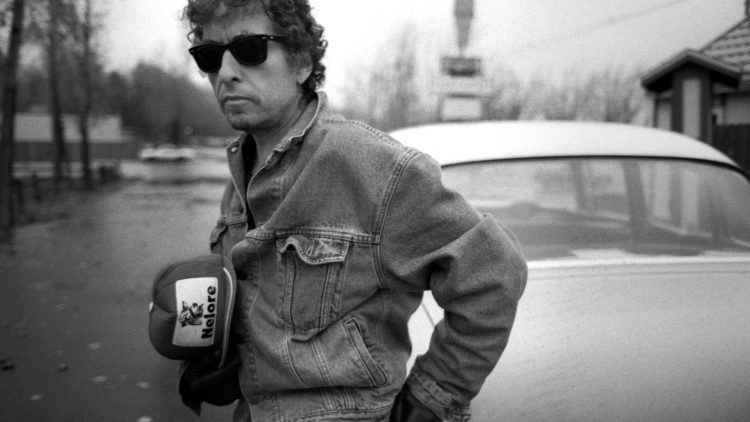Most editions of Bob Dylan’s three-decades-and-running Bootleg Sequence give attention to a specific section of his profession, however just a few have zoomed in on the making of an particularly hallowed report. As its title makes clear, that’s the case with Fragments—Time Out of Thoughts Classes (1996-1997), the seventeenth quantity within the collection. That one album is blown out right into a five-disc package deal, which incorporates two full units of unissued outtakes and one other of dwell recordings from the Dylan-comes-alive excursions that adopted within the report’s wake.
As a lot as that appears like overkill, Time Out of Thoughts deserves the under-the-microscope remedy, not merely as a result of it copped an album-of-the-year Grammy (together with two others) in 1998. Even because it revealed a Dylan with an more and more charred voice, the moody, dark-night-of-the-Bob report marked a reboot of his music after two albums of acoustic people covers. This was his strongest set of songs since 1989’s Oh Mercy, and the sound of the album, aided enormously by producer Daniel Lanois, made you are feeling as should you have been listening to Dylan and his musicians working their manner by the historical past of American music in a abandoned and really smoky roadhouse. It’s a sound and sensibility he’s adhered to ever since.
As Fragments chronicles, arriving at that time was removed from easy. The center of the package deal are these vault outtakes, which reveal how the songs mutated and developed over the course of a yr. In its early levels, Time Out of Thoughts might have been a much more typical report. Subsequent to the model that finally emerged on the 2008 bootleg collection set Inform Story Indicators: Uncommon and Unreleased 1989–2006, an early, virtually unplugged take of “Purple River Shore” wouldn’t have felt misplaced on the soundtrack of a western, and “Love Sick”—brooding set to music in its remaining model—initially had a bit extra of a bump and grind to it. Different early takes, like a “Filth Highway Blues” that appears like a jam in a junkyard, really feel even looser and goosier than the launched takes, and a preliminary “Mississippi” is much less just like the stately model that made Love & Theft and extra like a frisky Planet Waves outtake.
However because the periods moved to a brand new location, Dylan, together with Lanois and the assorted musicians introduced in, appeared to understand that the songs merited one thing deeper, darker and extra acceptable for the fiftysometing Dylan. That’s particularly obvious in “’Til I Fell in Love with You”: An early take, which includes a yelpy, considerably extra limber-voiced Dylan, offers method to a later model nearer to the skulking one we’re aware of. Dylan was additionally smart to discard a musically jauntier tackle “Not Darkish But” for the slower, crawly model on Time Out of Thoughts.
Fragments additionally includes a remix of the unique album (which wipes away a few of the authentic’s sonic gloom), a disc of outtakes which have already been launched, and people dwell cuts, which additionally display how musically reborn Dylan was feeling on the time. (Alongside along with his acclaimed album, Dylan had additionally simply recovered from a heart-related well being scare). Dwelling as much as the title of the entire collection, these live performance tapes typically sound like bootlegs; right here and there, you may hear folks within the viewers commenting because the songs begin up and finish. However as with the developmental variations of the Time Out of Thoughts materials, these tapes, with their more and more aggressive and full of life incorporation of soar blues and swing, have been the blueprint of Dylan’s personal resurrection—one which continues 1 / 4 century later.




